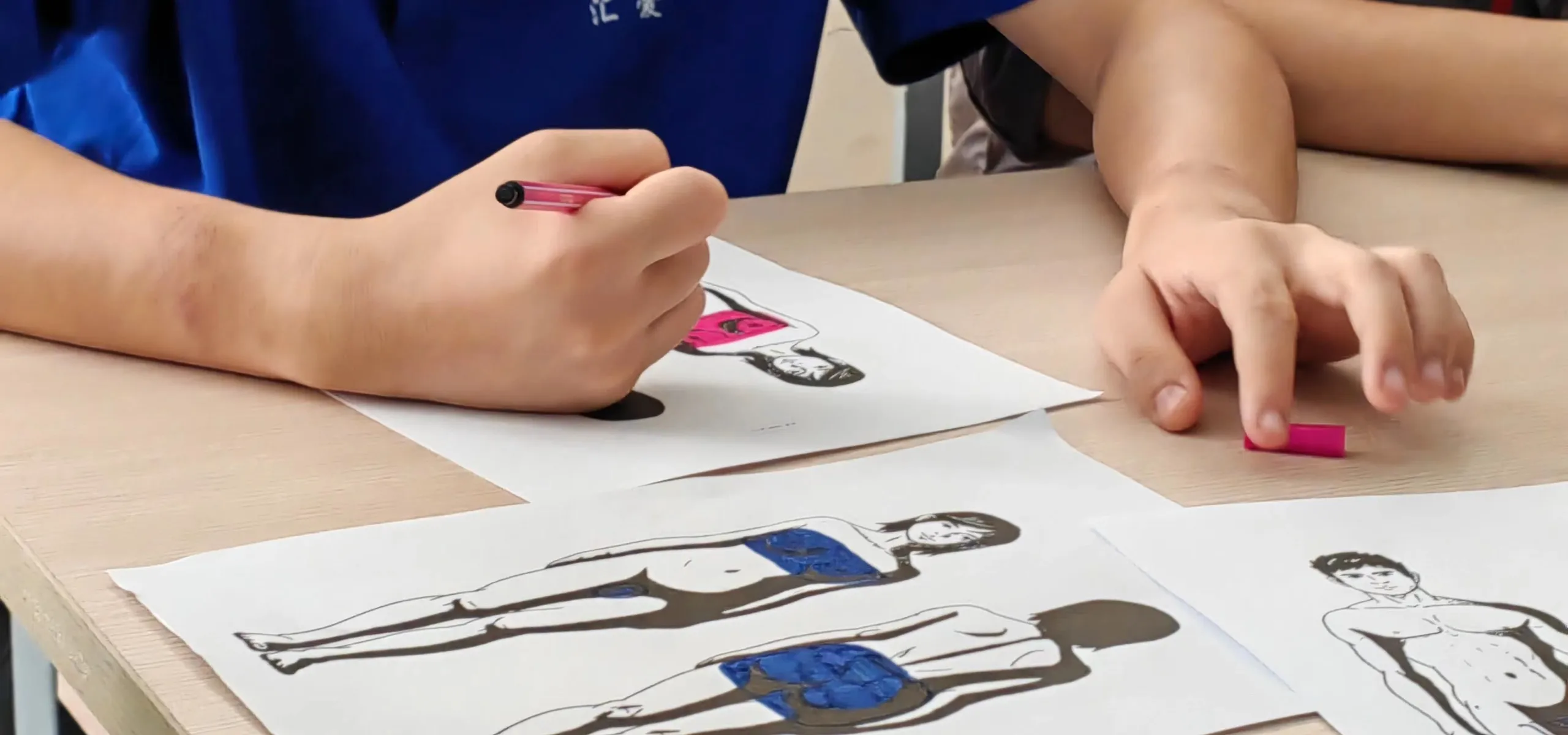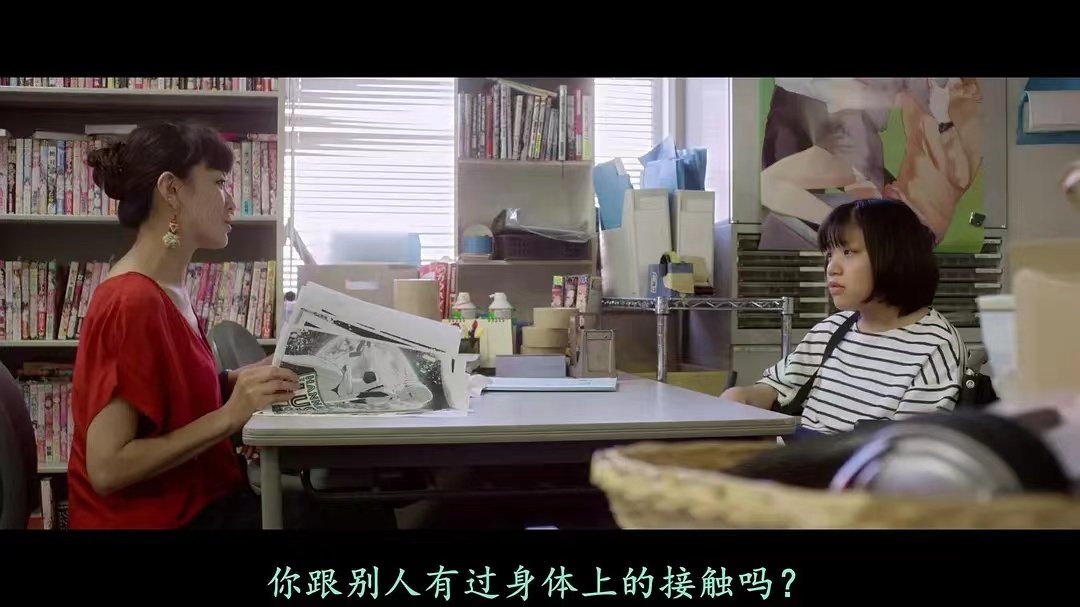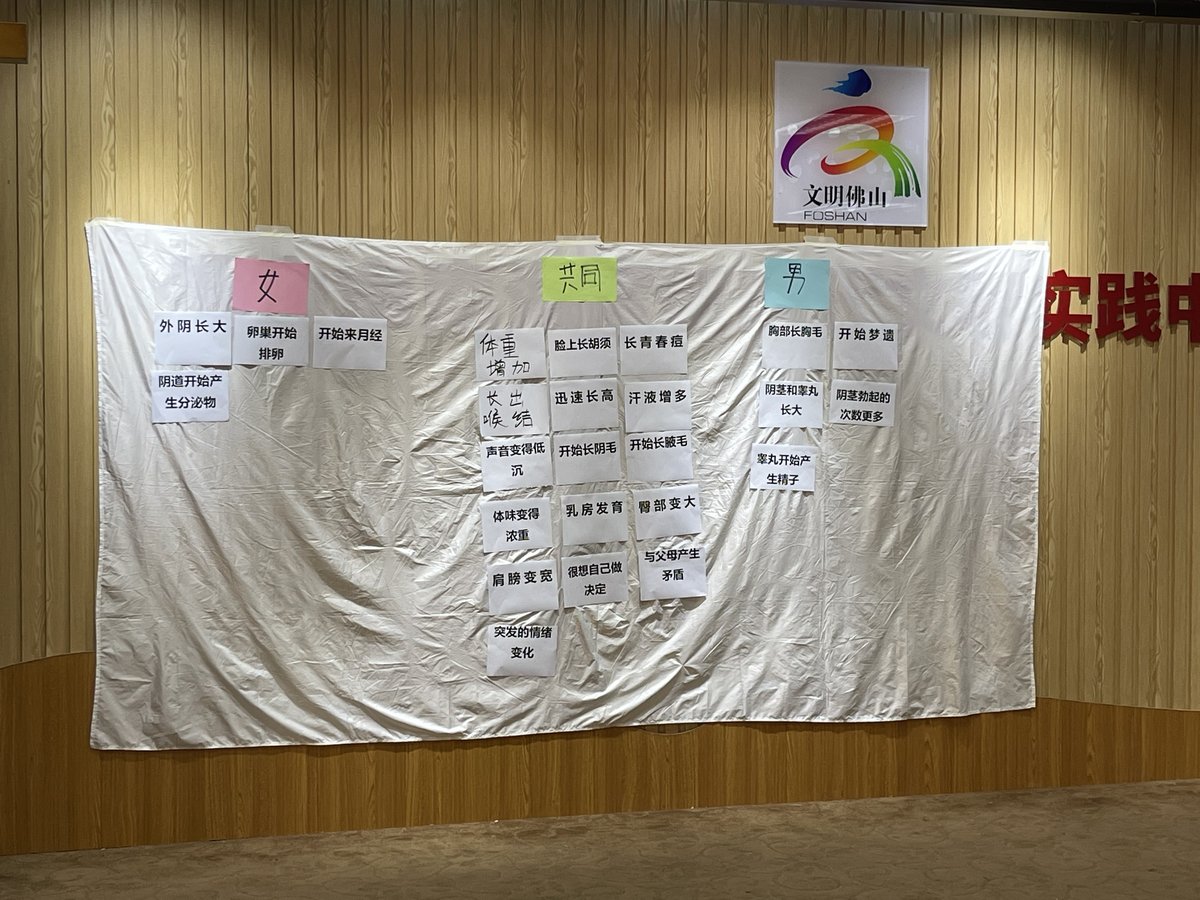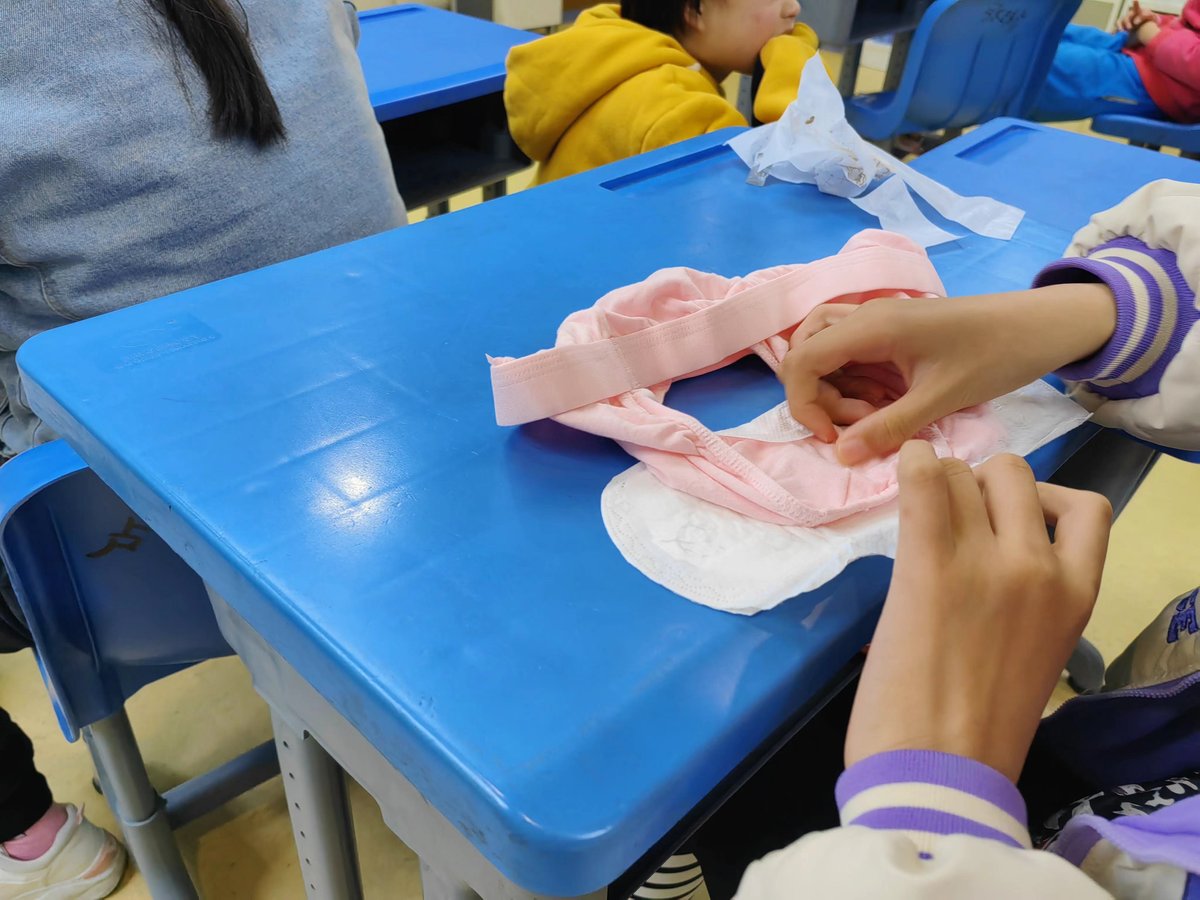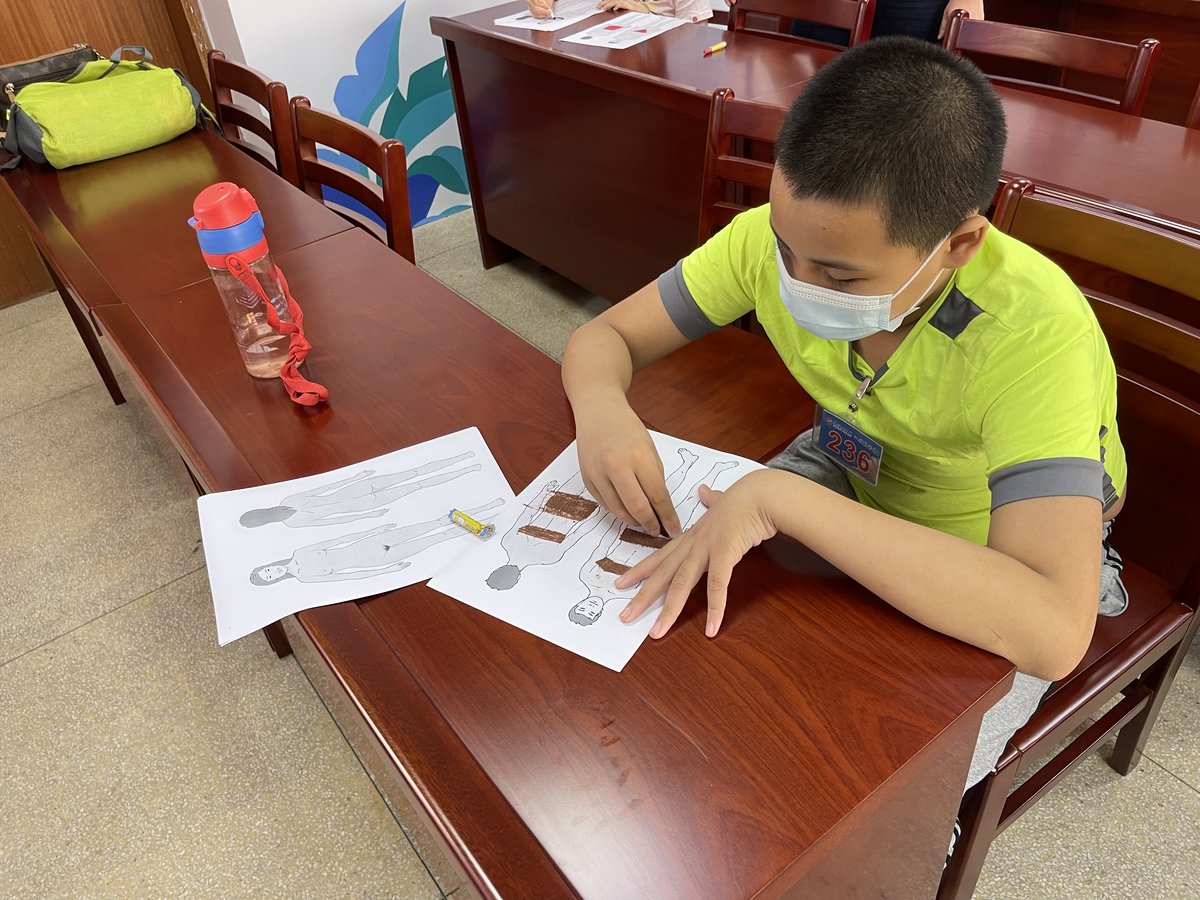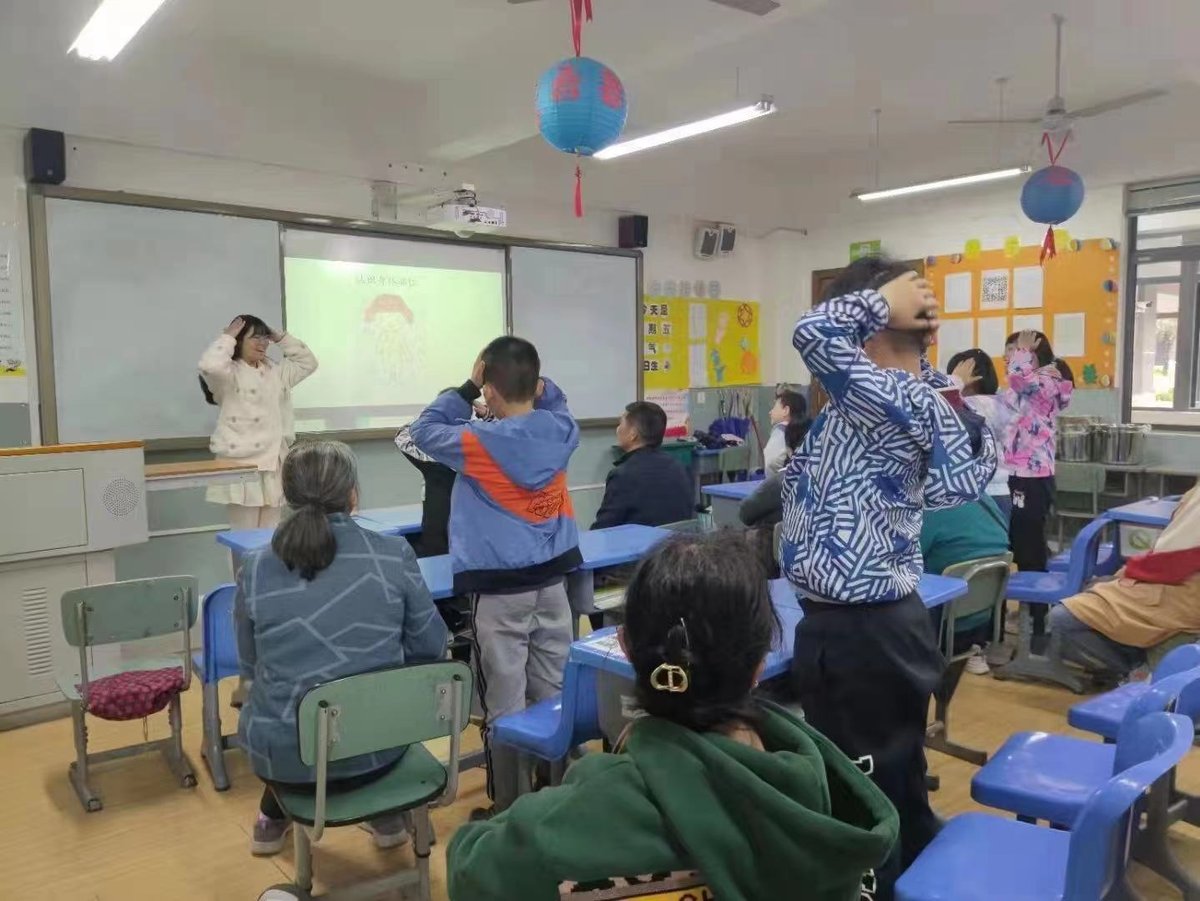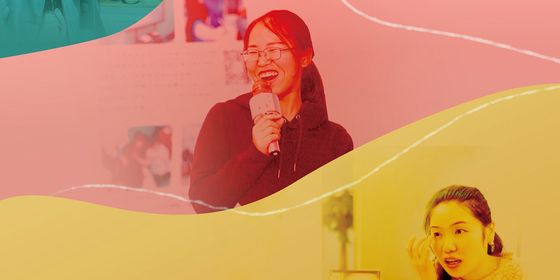Two sex educators for children and adolescents with intellectual disabilities discuss how society can better serve this vulnerable community
If you are old enough, you may recall a shocking news story from 2005: At the Nantong Children’s Welfare Institute in Jiangsu, two teenage girls with intellectual disabilities didn’t know how to deal with their periods, so the institute gave them hysterectomies in order to avoid the hassle of caring for them, as well as any other issues that might arise with sexual maturity.
In recent years, there have been similar instances around the world of women with intellectual disabilities having their wombs removed. Some of these cases involved sexual assault; others were out of parents’ concern that their children would not be able to care for the next generation. At their core is the issue that people with intellectual disabilities still experience great struggles when it comes to issues of sex, marriage, childbirth, and caregiving.
It’s long been the case that when our society discusses people with intellectual disabilities and cognitive disorders, we tend to focus more on their medical, care, and financial needs than on their sexual needs and rights. But in reality, people with intellectual disabilities also experience physical development and sexual maturity. Outside of being able to eat and drink their fill, they also have needs when it comes to sex and love.
Our two guests, Su Yanwen and Zhang Yuchi, both work in sex education for adolescents with intellectual disabilities. They have found that when it comes to these adolescents’ sexuality, many parents and teachers also feel anxious and overwhelmed.
So, how do people with intellectual disabilities experience sexuality? And how can we use sex education to help them understand their bodies and emotions?
-1-
Is this kid just acting out?
Su Yanwen: My name is Su Yanwen, and I’m 35. I am a social worker, and I also have another occupation—sex ed teacher.
The first time I encountered comprehensive sex education was in 2009. I was in the first semester of my senior year in college, studying social work. Due to my major, I had some understanding of the intellectually disabled population, but it was very basic. At the time, I also thought that what they needed was government help or medical support. I never considered that sex education could be so important for them.
Story FM: Around that time, an incident took place that sparked widespread discussion within Guangzhou’s intellectual disability circles. There was an autistic teenage boy who loved stockings, so whenever he saw someone wearing them, he would go up and touch them.
From many people’s point of view, this was clearly sexual harassment. So the boy’s school called his parents in and suggested that they could withdraw or suspend him from school.
The mother was distressed because she didn’t want to take her child out of school, but she also didn’t know how to address the problem. She simply felt that the situation ought to be handled through sex education.
This mother later sought help from Glenn Quint, an experienced sex educator from the United States. It was at one of his training sessions that Su Yanwen learned of this autistic boy’s story, as well as just how important sex ed was for people with intellectual disabilities.
Following this encounter, Su Yanwen decided to pursue a career in sex education for adolescents with intellectual disabilities.
Su: I tried looking up sex education on Baidu, but I only found results related to sex—nothing to do with education or training.
So I’m also grateful to this courageous mom who was willing to acknowledge her child’s needs, discuss them with the school, and get support from experts. In fact, her child was the first student in our sex education program.
Story FM: But unlike this mother, the vast majority of people are at a loss when faced with the sexual issues of people with intellectual disabilities. They may even ignore or suppress their sexual needs.
Our next guest is Zhang Yuchi, who has come across this issue in the course of her work. In 2021, Zhang joined Niwo (You and Me), a non-profit organization that provides sex education to children and adolescents.
Zhang Yuchi: My name is Zhang Yuchi, and I’m 30 years old. I’m from the organization Niwo (你我伙伴), where I provide sex education for teenagers with disabilities.
Some people may think that those with intellectual disabilities do not have sexual needs, while more still perhaps simply haven’t considered it.
For example, at one boarding school, a child might have masturbated one night and gotten semen on the sheets. Because this child had not gone through sex education and did not know how to deal with the situation, he left it until the next day.
His life skills teacher initially had a negative reaction, thinking that maybe he was acting out, or doing it on purpose rather than as a result of physical changes or a genuine need.
So she reported the incident to the child’s head teacher or his parents, and also told the child that his actions were wrong, but not specifically what was wrong about it, or what he should have done instead. The truth is that, in the moment, she didn’t know how to handle the situation.
Su: Most parents ignore these sexual needs. And with masturbation, it’s often hard for people with intellectual disabilities to find ways to conceal it from their parents. Because they usually live their whole lives under their parents’ watch, so long as the parents don’t acknowledge their sexual needs, those needs can’t be satisfied.
-2-
“Liking someone is like two butterflies flying together”
Story FM: In 2011, anthropologist Qian Linliang spent six months conducting field research at a children’s orphanage in Zhejiang. He found that caretakers of children with intellectual disabilities severely suppressed and stigmatized their sexuality.
Half of the children under the orphanage’s care had intellectual disabilities associated with Down syndrome or cerebral palsy. The caretakers worried that these children would be unable to regulate their own behavior, leading to consequences such as sexual assault, or that the children would develop behaviors they considered “abnormal,” such as homosexuality or “effeminacy.”
So whenever they felt children were exhibiting sexual behaviors, such as boys stripping naked and dancing in front of girls in the shower, they would typically use corporal punishment to discipline those children. Or they would do their utmost to avoid exposing children to anything that they thought could lead to sexual awakening—for example, quickly changing the channel if a show had sexual overtones.
So what is the nature of sexuality for those with intellectual disabilities? What are the consequences of sexual neglect, repression, and a widespread lack of sex education?
Su: I believe that they are just like any other teenager when it comes to their sexual needs and development.
The only difference is that typical children “know shame,” so to speak. During puberty, when they get an erection, they may think to take off their jacket and tie it around their waist to cover it up. But people with intellectual disabilities may not even realize that this is called an erection.
Zhang: I think the core issue is defining the boundary between public and private space. Some children will pull out their penises and openly masturbate in classrooms; others will do the same at the playground or on their way back to their dorms.
When we visited a school that we were preparing to teach at, we happened to meet a 14-year-old boy. This was during the exercise period between classes, and he was standing next to the playground with his pants dropped below the buttocks, exposing his genitals. He was rubbing his genitals against a lamppost.
We were talking with a teacher from the school at the time, and just passed by quickly. We didn’t immediately rush over to stop him or correct his behavior.
I went over to look again when the exercise period was over, and found that the lamppost was rusty, with sharp burrs on it. This affected me quite deeply, because I knew that this child had not been exposed to sex education. His teachers and parents may not have known how to teach him, making it difficult for him to find appropriate avenues for exploration.
Story FM: But sexuality involves more than the body alone; it also relates to interpersonal and intimate relationships. It often isn’t recognized that people with intellectual disabilities also experience love and attraction.
Su: At either end of our classroom, we put up two signs: A green finger pointing up for agreement, and a red finger pointing down for disagreement. Often, we do exercises where we ask the children questions and let them choose whether they agree or disagree.
We ask, have you thought about dating before? Have you thought about getting married? Have you thought about having a baby? Some say yes, and some no.
One girl chose “yes” when asked if she wanted to get married. We asked her why, and she said, “I want to wear a wedding dress, I want to wear a beautiful poufed skirt.” But she chose “no” for having kids. What she meant was that she thought kids were annoying.
We also advised parents to talk about these topics with their children, about having kids, marriage, relationships, and so on. Just because you don’t talk about it doesn’t mean they don’t have views on these topics.
One child once told me that liking someone is like two butterflies flying around together, a very romantic feeling. So some children do have the ability to talk about what it means to feel attraction.
I remember there was a teacher who asked us to teach sex education classes at her school. She said, when she taught art and had the children draw the ocean, most of them filled their pages with all kinds of colors and things. But one child’s drawing only had two fish in it.
That teacher even went up and said, “Why don’t you draw some more seaweed or something?” But the child, a 16-year-old with intellectual disabilities, said, “The two fish don’t need other people to interfere.” We immediately thought, isn’t this like two lovers who don’t care about the people around them? I thought, wow, this kid is amazing.
Story FM: But how should we express our attraction to others?
This is no easy task for people with intellectual disabilities. It may be difficult for them to understand social etiquette and interpersonal boundaries, so their expressions of attraction may fall outside of social norms, or may even lead to conflict or misunderstanding.
Su: There was a 16- or 17-year-old boy who saw a girl in a subway station, thought she was pretty, and wanted to approach her.
Because the boy had Down syndrome, his appearance may have scared her. She didn’t know what the boy was going to do, because he stood near her and then followed her off the train when she got to her stop. Whenever she walked forward, he would follow.
When I heard about this incident, I thought that if I hadn’t been familiar with Down syndrome, I may also have been afraid. But because I’m informed, I know that the boy may have simply liked this girl because she was pretty. He may have only wanted to go up and say hello, or stand quietly next to her and see if she would notice. He might be happy just to see her turn and smile at him.
But because he had no way to express this, he showed his interest in a way that is not socially acceptable.
The girl later chose to deal with the situation by reporting it to the police. After the boy’s parents went to the police station to explain the situation to the girl, she let the matter drop. She more or less said, then you’ve got to keep a better eye on your kid, so this kind of thing won’t happen again.
-3-
Better sex education
Story FM: Of course, simply “keeping a better eye” on one’s children cannot resolve the root issue, and it’s not what Su Yanwen and Zhang Yuchi hope to see in their work as sex educators. They want to remove some of the obstacles that prevent people with intellectual disabilities from integrating into society.
For Zhang Yuchi, sex education for this population is still in its nascent stage, and is often limited by their cognitive and expressive abilities. It may be hard to cover topics like marriage, child-rearing, or even gender and sexual diversity.
For now, the most crucial thing may be providing children with practical skills.
Zhang: There are eight main parts to our curriculum: How we are born, boys’ and girls’ hygiene, boys’ and girls’ puberty, private parts, self-protection, public and private spaces, masturbation, and attraction. Each module has different learning objectives.
For adolescents with intellectual disabilities, our content emphasizes skill-building while limiting the knowledge component.
Let me give you an example: If we’re teaching typical children about their periods, we might discuss why women menstruate, the physiological changes behind this, why these physical changes occur, as well as how they can deal with their periods practically and psychologically.
But when we do this module for teenagers with intellectual disabilities, we only teach them one thing, which is how to use menstrual pads.
First, the teacher takes out a real pad for everyone to see. Then we teach them how to remove the packaging, how to correctly stick it to their underwear, and how often they need to be changed. For higher-ability students, we might also teach them how to track their cycles.
These are some of the most acute issues they encounter in daily life.
Some children don’t learn well when they are taught at home. We met one parent who, after teaching her child, found that she didn’t know how to change the pads herself. The parent felt that it would be troublesome for her to go to school, that she would stain her pants and have emotional changes during her period. So the mother said, never mind, let’s just keep her at home whenever she has her period.
After we taught this class, the child learned to change her own pads, so the parent felt she could attend school normally again.
Su: We put the most emphasis on the practical side of things. A lot of the content is taught through simulated scenarios.
To use sexual assault prevention as an example, we must first help children understand assertive communication. They might set conditions, and then we affirm their behavior. Only later do we create scenarios where we make inappropriate demands.
I always start with verbal requests. For example, can I touch your bottom? There are children who will immediately stick up their bottom for you to touch.
At this time we have an assistant teacher run up and pull them aside, telling them to run and report the incident to a third teacher. If the children are able to, we have them verbally report what happened. If they knew it was Teacher Su then they would say, “Teacher Su tried to touch my bottom during class.”
Then the teacher receiving the report would say, did she touch you? After the child responded, our teachers would say, you did great, you ran away immediately—affirming every step. Then she would say, “I hope you’ll tell me and your parents the next time something like this happens.”
After we had rehearsed this scenario thoroughly, we would switch to the next one.
Another scenario we use is inviting them to touch us. We once had a kid who, when I said “I’ll give you candy if you take off your pants,” he really started taking them off. We couldn’t even rush over and grab his pants in time. So after that we stopped using this kind of exercise in the classroom.
We frequently switch up our scenarios. Then we’ll add outdoor scenarios, and finally a realistic interaction.
-4-
Getting parents on board
Story FM: Even though she was always changing the scenarios and settings, Su Yanwen still felt that there was a huge difference between classroom simulations and real life. Sometimes, she would fall into self-doubt: Are the children really learning? Are my classes of any use?
Even more frustratingly, she found that if she couldn’t change the parents’ attitudes, then the courses really were of limited use.
Su: I remember that one child searched a slang term for penis (xiaojiji) on Baidu, and what came up was pictures of baby chicks (xiaoji). After the mother found out, she realized that her child had these needs after all, and wanted to send him to our classes.
But when we actually taught her child about this, the parent’s reaction was unexpected. She came into class to say, Teacher Su, could you please stop teaching them the word for penis? I asked what the matter was. She said that when she was looking through her child’s search history, she found that after he learned the characters for penis, he was actually able to find what he was looking for.
There are parents who are like this, even if they’ve chosen to send their children to a sex education class. Because the issue she was hoping to address was keeping her child from touching other people, and also didn’t want her child to be inappropriately touched or assaulted. But aside from these two points, it seemed that many parents didn’t think their children needed to know much, as if they would automatically act on that knowledge.
The more advanced topics we teach people with intellectual disabilities—or what people think are advanced topics—include how to use condoms, how to decide whether to have sex, and conversations around dating. But these services were introduced in a facility that serves adults with intellectual disabilities.
We really would like to discuss these topics in our classes for adolescents, but we don’t want to fight the parents. We once taught children about masturbation, but after that class, the parents were already telling us that we were teaching too much.
So this all validates what I had long suspected—that the hardest work isn’t teaching the children, but rather supporting the parents.
Story FM: Starting in 2021, Su Yanwen tried to turn her focus toward serving parents. In collaboration with the Guangzhou Children’s Center, she organized a forum for parents of teenagers with intellectual disabilities to discuss the topics they were most interested in. This project has been on hold due to the pandemic, so its effects remain to be seen.
Zhang Yuchi, who hasn’t been working in the field for long, sometimes feels a similar sense of powerlessness. While most people may acknowledge the sexual rights of people with intellectual disabilities, the reality is that society as a whole doesn’t provide enough resources or support to this population. Parental care for people with intellectual disabilities is also riddled with blind spots and its own risks. Many of these problems cannot be resolved by sex education alone.
Taking sexual assault as an example—a topic that comes up whenever sex is discussed—Zhang has found that there are significant limitations to what she can do.
Zhang: We have heard of cases where children were sexually assaulted. There was a 13-year-old girl from a blended family, whose mother ran a business and didn’t have much time to care for her. She ended up being sexually assaulted multiple times by her stepfather.
At the time we did a basic investigation into whether penetrative sex had occurred. She answered that it had. After receiving this information, we reported it to school leadership, who reported it to higher-ups and called the police.
However, due to her disability, she wasn’t taken seriously by her family, and her parents had an ambivalent attitude. In the end, the investigation never went anywhere.
We felt quite conflicted about her situation. If her family decided to abandon her to an orphanage, which option would have been less harmful? As outside observers, we have no way to predict these outcomes.
We also have no way to know whether sexual assault will continue to occur.
We feel powerless in this kind of situation. As sex educators, we don’t know which way of dealing with it would be best for the child. I feel that this is a significant social problem that is hard to address through sex education alone.
Su: I think this is a huge challenge—how to undo harm after it’s already happened.
I think in 2014, there was a girl who was raped by some elders from her village. Her father had already passed away, and it was just her mother taking care of her. So the mother had no way to watch over her 24 hours a day.
The first one to assault her was a man in his 70s, who lived in their ancestral hall alone. He tricked her into coming over by saying, ”I’ll give you 5 yuan so you can buy some candy.” Afterward, he gave her 10 yuan and told her not to tell her mother.
This only came to light because the girl got pregnant. After performing a DNA test, they found out that it wasn’t only the man in his 70s, but also other old people in the village who were doing this.
I felt incredibly sad and helpless. For someone with intellectual disabilities, the only advice I could give the family at the time was to move—no matter how much hardship it caused them. All the older men in the village seemed to know about the situation, and were taking advantage of it. With such a hostile environment, it seemed that there was no other option.
I later learned more about this girl’s situation.
She had experienced pleasure during those sexual assaults. At first, it was others who assaulted her, but later on, she would voluntarily return to those people’s homes, or wait around outside. She didn’t have the language to say what she wanted, but those old people knew.
That was hard to accept. Conversely, I wish that parents, social circles, and society as a whole would recognize the sexual needs of people with intellectual disabilities. The girl also experiences sexual pleasure; if she could have satisfied her needs through masturbation, then her fate might have been different.
We should also start sex education as early as possible—unlike this girl’s situation. Now, her parent, social worker, or teacher would have to discuss sexual assault and sex education with someone with intellectual disabilities. They would need to communicate this in a way she can understand.
This is why we are so eager to teach sex education: It can be a preventative measure, rather than a way to remedy tragedies that have already happened.
We don’t want to have numerous chances to fix things. Because when you hear about just a single incident like this, it’s just so tragic. It makes you feel helpless—you really don’t know what more you could do.
-5-
Signs of change
Story FM: Despite these struggles that make them feel powerless, Su Yanwen and Zhang Yuchi have also witnessed real changes.
For example, the boy who had rubbed his genitals against the lamppost learned to masturbate in private. The boy who had gotten semen on his sheets learned to clean his genitals and change his underwear when he was done.
Zhang: We met a teacher who gave us some feedback. Once, when she was teaching a lesson on private parts, she asked the students whether the buttocks were a private part, and they said yes. The children have a close relationship with their teacher because they live together. After she finished teaching the class, she asked a student whether the buttocks were a private part, and the student said yes; she then asked whether that meant she could touch her butt, and the child happily said yes.
This teacher said that at the time, she felt a sense of failure. “I spoke for 40 minutes, and she knew that the buttocks were a private area, but she still said she would let me touch them.”
But she later found that when the children were playing with each other, there were some changes to their behavior. Some girls would explicitly reject other girls in their class who tried to touch their buttocks. One girl said, “These are my private parts, and you can’t touch them.”
So the teacher felt that the class had been useful for the children. The difficulty was that she needed to spend a lot of time and use many scenarios to make the lesson sink in. But when she saw the changes in their behavior, she felt that it had been worthwhile for both the children and for herself.
Su: There was a girl with Down syndrome who graduated not because we felt she had mastered the content, but because the two years of the program were up and she had to vacate her spot for another student. We actually weren’t sure how much she could learn, because whenever we interacted in class, she needed an assistant teacher to prompt her on the next step. Her language skills were also weak, and she had trouble communicating clearly in our interactions.
But about a year later, I bumped into her mom. She pulled me aside to say, Teacher Su, I want to tell you something.
She said that one day on the subway, her daughter suddenly spoke up. She had trouble getting her meaning across, but she said, “Mom, change seats.” She said this a couple times. The mother thought this was strange—why would my daughter suddenly ask me to switch seats? But she had a good intuition: If her daughter asked her to change seats, she’d do it first and ask questions later.
After changing seats, she closely observed their surroundings. The mother concluded that the person who originally sat next to her daughter must have been making her uncomfortable; this was a middle-aged man.
After leaving the subway station, she asked her daughter about the incident again, but the girl still couldn’t explain clearly. She then asked, was the man next to you trying to touch you? And her daughter nodded.
While her daughter may not have been able to name private parts the way some of the other children with intellectual disabilities could, she was surprised and delighted that her daughter could perceive that this person didn’t have good intentions toward her, knew to ask for help, and was able to confirm the facts afterward.
We’d always thought the two years that the girls spent in our program was a waste of time. But this mother told me, “Teacher Su, it helped, it just took a year for it to help.”
This is what keeps us going as sex educators: Believing that we are doing the right thing, and seeing parents come to believe the same thing and ride out the challenges with us.
Produced by Nie Liping
This episode was produced with the support of Niwo and Voice of Public Welfare
Sources:
“Scandals Surround Nantong Orphanage That Performed Hysterectomy on Adolescent Girls,” South Metropolis Daily, 2005.
“Why Has an Organization for Sex Education for the Intellectually Disabled Started Many Services Unrelated to Sex Education?” ilovegrowth.cn, 2022.
Qian Linliang. “Awareness of Danger: Reflections on Sex Education of Children With Disabilities in Orphanages.” Journal of Zhejiang Industrial and Commercial University, 2017(6): 106 - 116.
___
This story is published as part of TWOC’s collaboration with Story FM, a renowned storytelling podcast in China. It has been translated from Chinese by TWOC and edited for clarity. The original can be listened to on Story FM’s channel on Himalaya and Apple Podcasts (in Chinese only).





